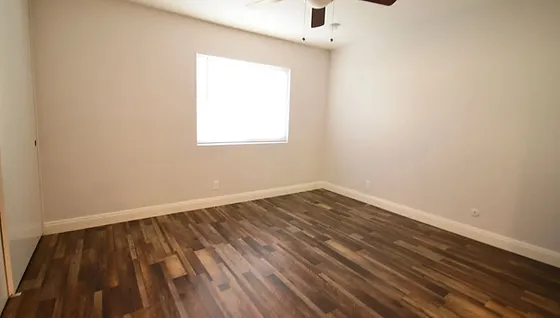Introduction
In today’s economic climate, finding affordable housing can be a challenge, especially in densely populated urban areas. Many individuals and families are on the lookout for budget-friendly options, and one popular search query is “renta de cuartos $500 cerca de mi” or “rooms for rent $500 near me.” This article aims to provide a comprehensive guide to finding affordable rooms for rent, offering tips on where to look, what to consider, and how to secure the best deals.
1. Understanding the Market for Affordable Rooms
The demand for affordable housing has skyrocketed, leading to a competitive market. Rooms priced at $500 or less are particularly sought after by students, young professionals, and individuals looking to save on housing costs. Understanding the market dynamics, including the supply and demand for affordable rooms, can help you navigate your search more effectively.
2. Where to Search for Rooms for Rent at $500
Finding affordable rooms for rent requires utilizing multiple resources. Here are some of the most effective platforms and methods:
- Online Rental Platforms: Websites like Craigslist, Zillow, and Roomster offer extensive listings of rooms for rent. Filtering the search results by price and location can help you find rooms within your budget.
- Social Media Groups: Facebook groups and community pages often have posts about available rooms. Joining local housing groups can provide real-time updates on new listings.
- University Bulletin Boards: If you’re a student or live near a university, check the campus bulletin boards for rental postings. Many students sublet their rooms during the summer or semester breaks.
- Local Classifieds: Newspapers and local classified ads can also be a good source for affordable rentals.
3. What to Look for in an Affordable Room
When searching for a room within a $500 budget, it’s essential to consider several factors to ensure you get the best value for your money:
- Location: Proximity to work, school, or public transportation can save you time and money on commuting.
- Utilities Included: Check if the rent includes utilities like electricity, water, and internet. This can significantly affect your monthly expenses.
- Room Condition: Ensure the room is in good condition and meets your standards for comfort and safety.
- Roommates: Consider the number and nature of roommates. Living with like-minded individuals can enhance your living experience.
4. Tips for Securing a Room for Rent
Securing an affordable room can be competitive, so it’s important to be prepared and proactive:
- Act Quickly: Rooms priced at $500 tend to go quickly. Respond to listings promptly and schedule viewings as soon as possible.
- Prepare Your Documents: Have your rental application, proof of income, references, and identification ready to present to landlords.
- Communicate Clearly: Be clear about your requirements and expectations with potential landlords or roommates. Good communication can help avoid misunderstandings later.
5. Legal Considerations and Tenant Rights
Understanding your rights as a tenant is crucial when renting a room:
- Lease Agreement: Ensure you have a written lease agreement outlining the terms and conditions of your rental. This should include rent amount, due date, security deposit, and any house rules.
- Tenant Rights: Familiarize yourself with local tenant laws, which can protect you from unfair practices and ensure a safe living environment.
- Subletting Rules: If you’re subletting a room, ensure the arrangement is legal and approved by the primary landlord.
6. Budgeting for Your Room Rental
Managing your finances effectively is key to maintaining affordable housing:
- Monthly Budget: Create a budget that includes rent, utilities, groceries, and other essential expenses. Ensure that your total monthly expenses do not exceed your income.
- Emergency Fund: Set aside an emergency fund to cover unexpected costs such as medical bills or urgent repairs.
- Savings: Look for ways to save on non-essential expenses to increase your financial stability.
7. Alternatives to Traditional Room Rentals
If you’re struggling to find a room within your budget, consider alternative housing options:
- Shared Housing: Co-living spaces and shared housing arrangements can offer affordable rent and a sense of community.
- House Sitting: In exchange for looking after a property, some homeowners offer free or reduced rent.
- Work Exchange: Programs like WWOOF (World Wide Opportunities on Organic Farms) provide free accommodation in exchange for volunteer work.
Conclusion
Finding a room for rent at $500 near you is possible with the right approach and resources. By understanding the market, utilizing various search methods, and being prepared, you can secure an affordable and comfortable living space. Remember to consider all factors, including location, utilities, and legal aspects, to make an informed decision. With patience and persistence, you can find a room that fits your budget and meets your needs.
FAQs
1. What are the best websites to find rooms for rent at $500?
Some of the best websites for finding affordable rooms for rent include Craigslist, Zillow, Roomster, and local Facebook housing groups.
2. How can I ensure the room I rent is safe and in good condition?
Before renting, visit the room in person, check for any damages, and speak with current or previous tenants if possible. Ensure the lease agreement includes terms about maintenance and repairs.
3. What should I include in my rental application?
A typical rental application should include proof of income, references, identification, and a completed application form provided by the landlord.
4. Are utilities usually included in the rent for rooms priced at $500?
It varies by listing. Some rentals include utilities in the rent, while others do not. Always clarify this with the landlord before signing the lease.
5. What legal protections do I have as a tenant renting a room?
Tenant rights vary by location, but generally include protection from unfair eviction, the right to a safe and habitable living environment, and the right to privacy. Familiarize yourself with local tenant laws for specific protections.

